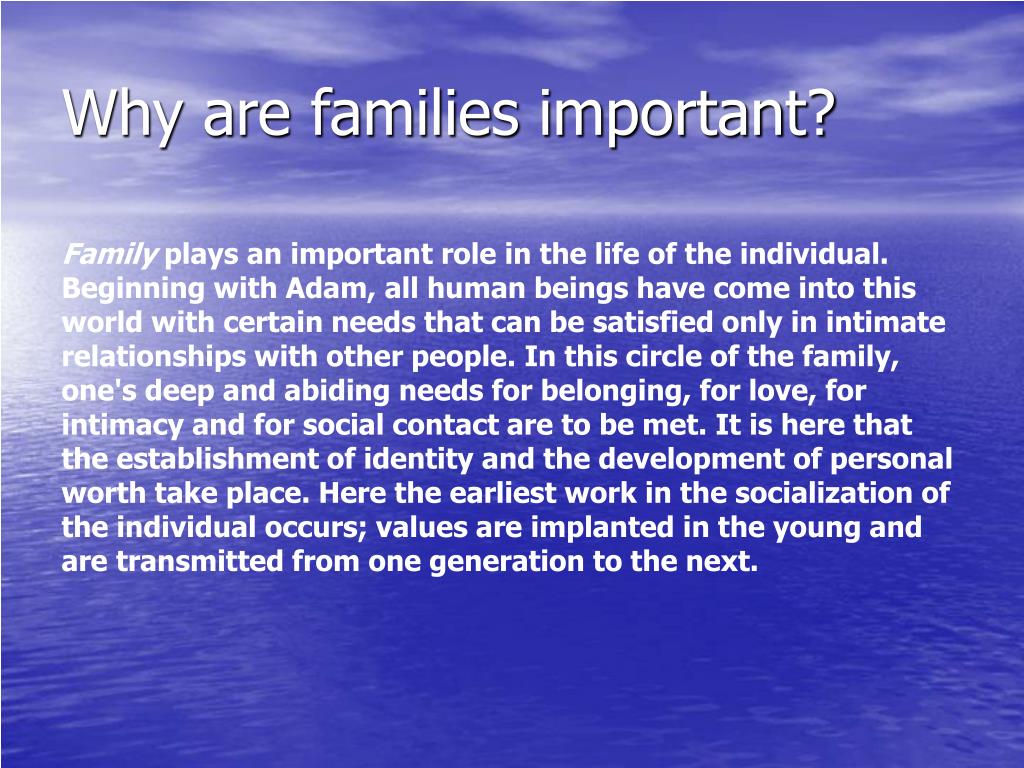Why Is Family Important To Society

The bedrock of societal stability is under increasing scrutiny, yet its fundamental role remains undeniable. Family, in its diverse forms, is not merely a personal matter but a critical societal infrastructure.
This article explores why family is vital for societal well-being, drawing upon research and established sociological principles. It focuses on the critical roles families play in shaping individuals and, consequently, the societies they form.
The Foundation of Socialization
Families are the primary agents of socialization. They instill values, norms, and behaviors necessary for functioning within a community.
From basic manners to complex moral codes, families teach children how to interact, cooperate, and contribute to society. This initial learning significantly impacts an individual's future conduct and societal cohesion.
Economic Stability and Support
Families serve as crucial economic units. They provide financial support, resource sharing, and a safety net during times of hardship.
According to the U.S. Census Bureau, households contribute significantly to the overall economy through consumption and labor. Strong family units often lead to greater economic stability for individuals and communities.
Emotional Well-being and Mental Health
A stable family environment is essential for emotional well-being. Families offer love, support, and a sense of belonging, which are vital for mental health.
Research from the American Psychological Association indicates that individuals with strong family connections report lower levels of stress and depression. This positive emotional foundation contributes to a healthier and more productive citizenry.
Education and Skill Development
Families play a significant role in education. They provide early learning opportunities, support academic endeavors, and instill a value for knowledge.
Studies show that children from homes with active parental involvement in education tend to perform better academically. This translates into a more skilled workforce and a more educated society.
Crime Prevention and Social Order
Strong family bonds contribute to crime prevention. Involved parents and stable family environments reduce the likelihood of juvenile delinquency and anti-social behavior.
The National Institute of Justice reports that children from stable homes are less likely to engage in criminal activities. Family stability fosters a sense of responsibility and accountability, crucial for maintaining social order.
Addressing Challenges to Family Stability
Modern societies face numerous challenges to family stability, including economic pressures, changing social norms, and increased family breakdown.
Supportive policies, community resources, and educational programs are essential for strengthening families. These interventions can mitigate the negative impacts of societal challenges and promote healthy family functioning.
The Future of Family and Society
Understanding the vital role of family is crucial for policymakers and community leaders. Investments in family support programs are investments in the future of society.
Moving forward, efforts must focus on strengthening families through comprehensive policies that address economic hardship, promote parental involvement, and provide access to mental health services. The well-being of society depends on it. Family is not an option; it is a necessity.


















